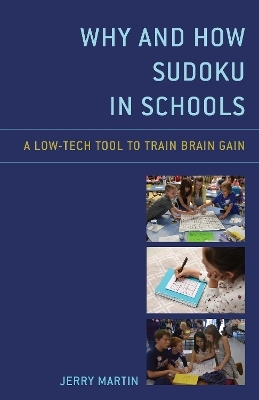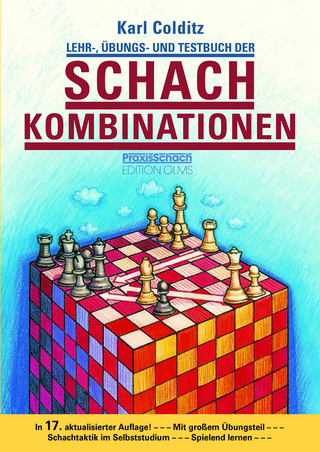
Why and How Sudoku in Schools
A Low-Tech Tool to Train Brain Gain
Seiten
2022
Rowman & Littlefield (Verlag)
978-1-4758-6577-6 (ISBN)
Rowman & Littlefield (Verlag)
978-1-4758-6577-6 (ISBN)
This book explains why sudoku is a potentially powerful training tool to impact the cognitive skills of children.
This book, in two parts, Why and How, is a result of fifty years of a variety of educational efforts. This book explains, in studied detail, why solo Sudoku is a potentially powerful training tool to impact the cognitive skills of most of humanity. Training pure logical thinking capabilities, known as fluid intelligence, can give children mental advantages that produce better decision making and problem solving that come from optimal management of information. Repeating logical problem solving about 50 times each puzzle trains logical thinking. Sudoku makes clear the need for relevant information, accuracy, sufficient information and a variety of patterns, all of which lead to our best results when encountering all mental challenges.
Sudoku appeals to anyone who can count to nine. Sudoku is immune to any differences of religion, language, politics, nationality, race. ethnicity, age or gender. Sudoku is very practical, being cheap, requiring no technology, and can be done anywhere any time, requiring only a pencil and a flat place to write. When done in teams, Sudoku is beneficial in developing social skills such as communication, collaboration, cooperation and leadership. Written primarily for educators, this book is also applicable in prisons, hospitals and senior living communities, where self-esteem, independent thinking and boredom can be influenced.
This book, in two parts, Why and How, is a result of fifty years of a variety of educational efforts. This book explains, in studied detail, why solo Sudoku is a potentially powerful training tool to impact the cognitive skills of most of humanity. Training pure logical thinking capabilities, known as fluid intelligence, can give children mental advantages that produce better decision making and problem solving that come from optimal management of information. Repeating logical problem solving about 50 times each puzzle trains logical thinking. Sudoku makes clear the need for relevant information, accuracy, sufficient information and a variety of patterns, all of which lead to our best results when encountering all mental challenges.
Sudoku appeals to anyone who can count to nine. Sudoku is immune to any differences of religion, language, politics, nationality, race. ethnicity, age or gender. Sudoku is very practical, being cheap, requiring no technology, and can be done anywhere any time, requiring only a pencil and a flat place to write. When done in teams, Sudoku is beneficial in developing social skills such as communication, collaboration, cooperation and leadership. Written primarily for educators, this book is also applicable in prisons, hospitals and senior living communities, where self-esteem, independent thinking and boredom can be influenced.
Jerry Martin holds a Masters degree in mass communications and has spent over fifty years in a variety of creative educational activities. He has been teaching Sudoku to children and adults for eight years and was instrumental in producing three annual children’s team Sudoku tournaments in his hometown.
Preface
Acknowledgements
Introduction
Part 1: Why Sudoku
Chapter 1: Solo Sudoku
Chapter 2: Team Sudoku
Part 2: How
Chapter 3: Vocabulary
References
| Erscheinungsdatum | 08.10.2021 |
|---|---|
| Verlagsort | Lanham, MD |
| Sprache | englisch |
| Maße | 142 x 208 mm |
| Gewicht | 132 g |
| Themenwelt | Sachbuch/Ratgeber ► Freizeit / Hobby ► Spielen / Raten |
| Sozialwissenschaften ► Pädagogik | |
| ISBN-10 | 1-4758-6577-5 / 1475865775 |
| ISBN-13 | 978-1-4758-6577-6 / 9781475865776 |
| Zustand | Neuware |
| Haben Sie eine Frage zum Produkt? |
Mehr entdecken
aus dem Bereich
aus dem Bereich
Buch | Softcover (2024)
Edition Olms (Verlag)
CHF 26,90


